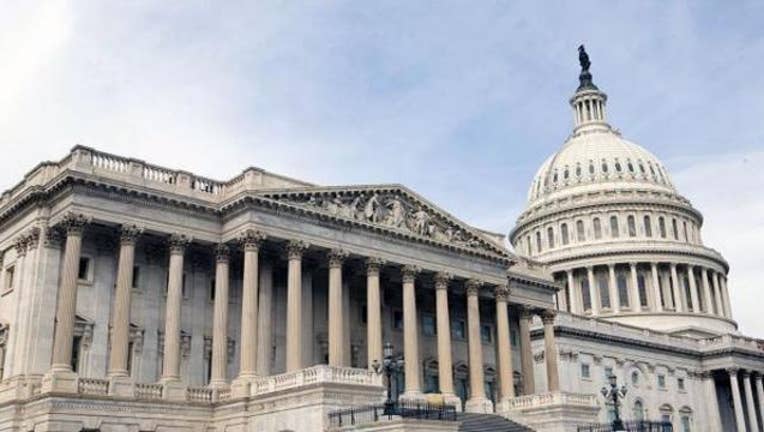House OKs year-end budget deal, sends legislation to Senate

WASHINGTON (AP) -- The House on Friday easily passed a $1.14 trillion spending bill to fund the government through next September, capping a peaceful end to a yearlong struggle over the budget, taxes, and Republican demands of President Barack Obama.
The 316-113 vote exceeded expectations and sent the legislation to the Senate for action later Friday. Senators planned to vote on the spending measure in combination with a year-end tax plan that would give breaks to working families and a wide variety of business interests.
With the series of votes, lawmakers were on track to conclude a surprisingly productive, bipartisan burst of late-session legislation in a divided Congress.
Obama has promised to sign the legislation, which includes many of the spending increases he has demanded all year. Among the Republican victories are a big boost for the military and an end to the four-decade ban of exporting U.S. crude oil.
The measure received big majorities in the House from Republicans and Democrats. House Democratic leader Nancy Pelosi of California, a key negotiator, swung forcefully behind the measure after showing frustration over its lifting of oil export ban.
"They wanted big oil so much that they gave away the store," Pelosi said. But she cited successes in driving away most GOP policy proposals from the measure. Democratic also pushed through higher domestic budgets and tax breaks for working families and renewable energy.
The measure won support from Republicans by a 150-95 margin. Democrats followed Pelosi's lead and backed the bill by a 166-18 margin.
Both parties scored political coups.
More than 50 expiring tax cuts will be extended, with more than 20 becoming permanent, including credits for companies' expenditures for research and equipment purchases and reductions for lower-earning families and households with children and college students.
The spending measure would fund the operations of every Cabinet agency. It awards increases of about 6 percent, on average, above tight spending caps that were a relic of a 2011 budget and debt deal -- and were opposed by both GOP defense hawks and Democrats seeking boosts in domestic spending.
The House vote bundled with the spending measure a tax bill that passed on Thursday. The Senate was expected to approve the package and send it Obama later Friday, even though presidential candidates in the Senate such as Republican Marco Rubio of Florida threatened to delay the votes.
After the Senate action, Congress planned to adjourn until January.
The budget pact was the last major item in a late-session flurry of bipartisanship in Washington, including easy passage of long-stalled legislation funding highway programs and a rewrite of education programs.
Many on each side saw the budget deal as the best they could get under divided government. The need to win Obama's signature helped rid the measure of most of the controversial GOP provisions: killing federal money for Planned Parenthood, limiting the flow of Syrian refugees and undoing dozens of Obama actions on the environment, labor, financial regulation and relations with Cuba.
The measure contains large spending boosts for veterans and medical research, and funds a familiar roster of grants for transportation projects, first responders and community development.
It also clears away an almost $1 billion backlog of federal courthouse projects and sends hundreds of millions of dollars to the states and districts of a handful of powerful lawmakers such as Sen. Thad Cochran, R-Miss., and Rep. Harold Rogers, R-Ky., the chairmen of the Appropriations committees.
Also crammed into the two bills are provisions trimming some of the levies that help finance Obama's prized 2010 health care overhaul. The White House opposed the rollbacks, but Republicans and many Democrats savored them. A tax on medical devices would be suspended for two years, a levy on health insurers would stop for a year and, in a victory for unions, a tax on higher-cost insurance policies would be postponed two years until 2020.
In exchange for ending the oil export ban, Democrats won extensions of tax breaks for alternative power sources such as solar and wind energy.
Other extended tax cuts include breaks for some teachers, commuters, timber investors, electric vehicle owners and makers of hard cider drinks. People in the seven states without income taxes will be able to deduct local sales taxes on their federal returns.

